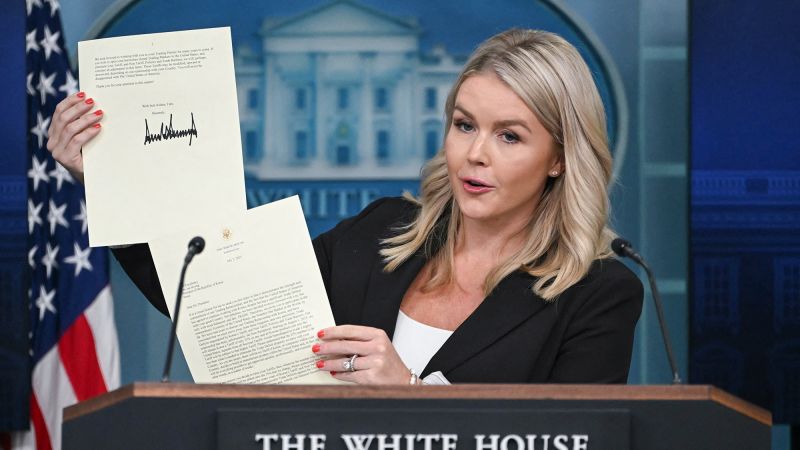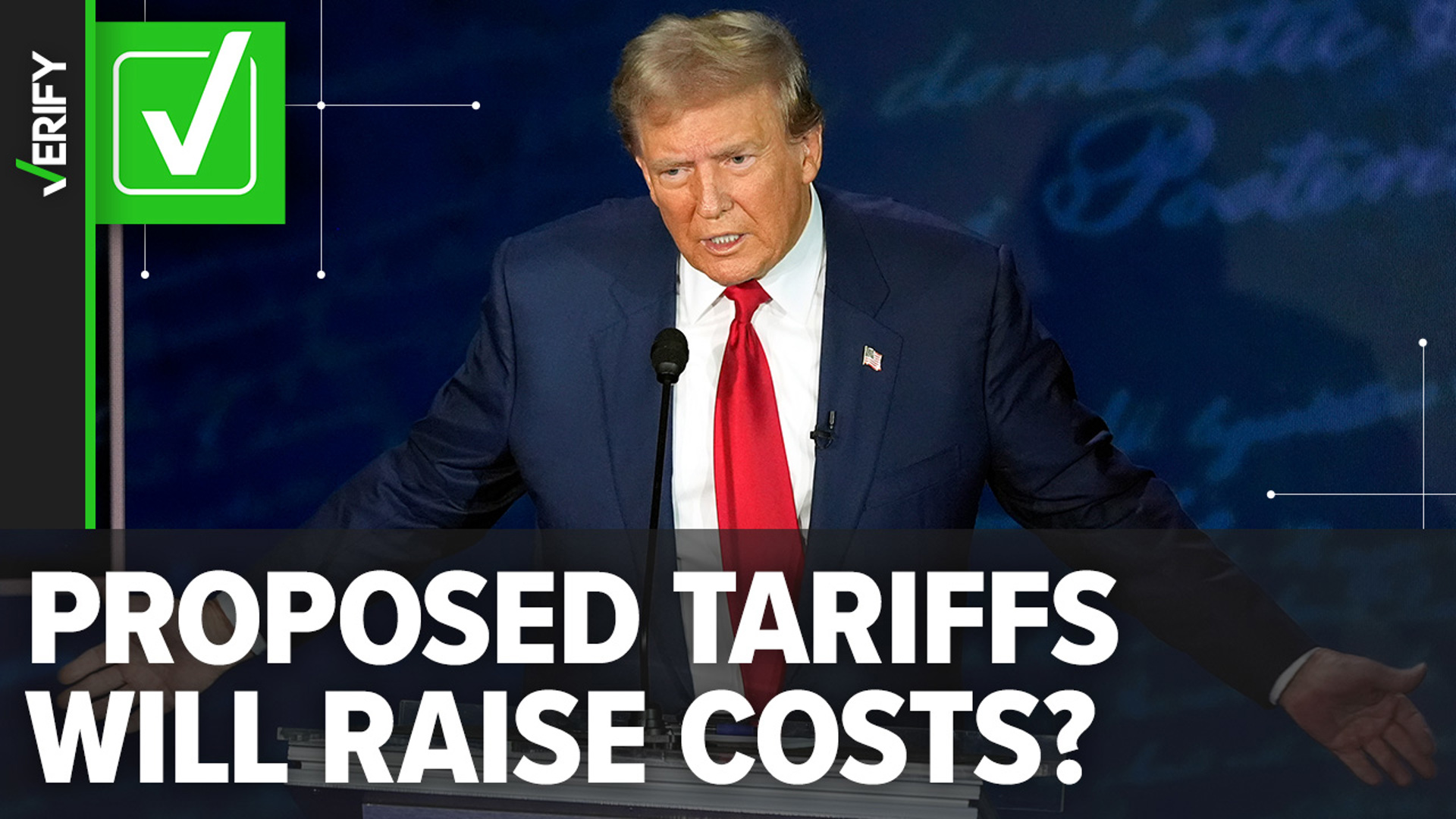Global Impact of Trump's Tariffs
Introduction
President Donald Trump's new tariffs have gone into effect, causing global financial markets to react. This recent move has caused a sharp increase in import taxes on goods from more than 60 countries, including China and the European Union.
Impact on Global Markets
The implementation of these tariffs has caused a ripple effect across the global economy. Markets in Europe and Asia have seen a rise, while stocks on Wall Street are slipping. This is a result of increased tensions between the US and its major trading partners, leading to a potential trade war. The uncertainty of how this will play out has caused unease in the financial markets and could have a significant impact on the global economy.
Potential Strain on the US Economy
The US economy has been showing signs of strain, with the trade deficit reaching a record high and job growth slowing. These new tariffs could further exacerbate these issues, leading to potential consequences for US businesses and consumers. The cost of imports will likely increase, causing price hikes and potential job losses as companies try to offset the higher taxes. This could also lead to decreased consumer spending, which could have a negative impact on the overall economy.
About the People Mentioned
Donald Trump
Donald John Trump, born June 14, 1946, in Queens, New York, is an American businessman, media personality, and politician. He graduated from the University of Pennsylvania’s Wharton School in 1968 with a degree in economics. In 1971, he took over his family’s real estate business, renaming it the Trump Organization, through which he expanded into building and managing skyscrapers, hotels, casinos, and golf courses. Trump gained widespread fame as the host of the reality TV show *The Apprentice* from 2004 to 2015, which helped establish his public persona as a successful entrepreneur. Trump entered politics as a Republican and was elected the 45th president of the United States, serving from 2017 to 2021. His presidency was marked by significant policy actions including tax cuts, deregulation, the appointment of three Supreme Court justices, renegotiation of trade agreements (notably replacing NAFTA with the USMCA), and a focus on immigration control including border wall expansion. He withdrew the U.S. from international agreements such as the Paris Climate Accord and the Iran nuclear deal, and engaged in a trade war with China. His administration’s response to the COVID-19 pandemic was criticized for downplaying the virus’s severity. Trump was impeached twice by the House of Representatives—first in 2019 for abuse of power and obstruction, and again in 2021 for incitement of insurrection—but was acquitted by the Senate both times. After losing the 2020 election to Joe Biden, Trump challenged the results, culminating in the January 6, 2021, Capitol riot. He remains a central figure in American politics, having won the 2024 presidential election and returned as the 47th president in 2025, continuing to promote policies aimed at economic growth, border security, and military strength[1][2][3][4].
About the Organizations Mentioned
Wall Street
**Wall Street: A Comprehensive Overview** Wall Street is not an organization but a term used to describe the financial district in Lower Manhattan, New York City. It is synonymous with the U.S. financial markets and the home of the New York Stock Exchange (NYSE), the largest stock exchange in the world by total market capitalization of its listed companies. ## History and Function The term "Wall Street" originated from a wall built by Dutch settlers in the early 17th century to mark the northern boundary of New Amsterdam. Over time, it became a hub for financial transactions, with the first stock exchange opening in 1792. Today, Wall Street is a symbol of American finance, hosting numerous financial institutions, investment banks, and stock exchanges. ## Key Achievements - **Financial Innovation**: Wall Street has been at the forefront of financial innovation, introducing new financial instruments and trading mechanisms that have shaped global markets. - **Economic Growth**: It plays a crucial role in facilitating capital flows, which are essential for economic growth and development. - **Global Influence**: Wall Street's influence extends globally, with many international companies listing on U.S. exchanges. ## Current Status Currently, Wall Street is experiencing a period of significant growth and transformation. The U.S. stock market has seen substantial gains in recent years, with the S&P 500 reaching new highs. Analysts predict continued growth, though at a slower pace than in previous years, with an average year-end price target for the S&P 500 in 2025 forecasted to be around 6,539, representing an approximately 8% increase[1][2]. ## Notable Aspects - **Technological Advancements**: Wall Street is increasingly embracing technology, from digital trading platforms to AI-driven investment strategies, which are transforming how financial transactions are conducted. - **Regulatory Environment**: The sector is heavily regulated, with institutions like the Securities and Exchange Commission (SEC) overseeing activities to ensure transparency and fairness. -














